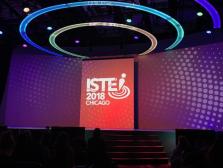As personalized learning expands, edtech ‘plumbing’ is as important as ever

Technology has put personalized learning within reach of a growing number of classrooms across the United States. But educators and school administrators still aren’t giving enough thought to the infrastructure, policies and training that make those tools effective, a group of edtech experts said at the SXSWedu conference, which wrapped up in Austin, Texas, this week.
“Schools don’t think enough about the plumbing,” said tech entrepreneur, Muhammed Chaudhry, CEO of the nonprofit Silicon Valley Education Foundation. “They tend to focus too much on cool devices and superstar teachers” without fully addressing the larger, holistic picture to support personalized learning.
At the same time, “Technology is how we can scale personalized learning,” said Eileen Rudden, co-founder of LearnLaunch and a former top official at Chicago Public Schools. “Teachers have been trying to differentiate for years,” she said. What schools must do now is focus on “the selection of technology that supports instructional objectives.”
Also at the heart of the personalized learning edtech debate, the panelists said: striking the right balance between high-tech and high-touch in the classroom to help kids master their subjects, and ensuring resources are available so every student has an equal shot at what technology can offer.
Chaudhry described the two Silicon Valley worlds he travels through: “A valley where you find all the riches of the world, and another [less affluent] part of the valley where kids working on 30 computers in a classroom are crashing the network.”
Budgets are always a factor determining school infrastructure, but so is the vision for how those budgets are developed and parceled out. Chaudhry stressed the importance for states and districts to think in terms of multi-year tech funding.
“Make sure there’s a recurring funding model for technology” to support personalized learning initiatives, he said. He praised the steps California took in passing an 18-year, $118 million edtech bond fund, so that schools “don’t have to scrounge up money every year.” But just as important, he added, was that state education officials also “made sure a bulk of the funds went toward training.”
He also urged the audience of mostly educators to “really understand where they are with their technology.” There are a variety of free and openly available assessment tools, including ones his foundation offers, that “let you go in and see what your technology infrastructure looks like today.”
“The plumbing is the most boring part of technology,” he said, but it’s important to ask, “How do you make sure you have what’s needed so it works? How are the [tech] policies in your schools working? For example, how well do you maintain data privacy policies?”
Chaudhry suggested that with “4,000 companies providing education technology … you need a trusted adviser to assess the tools in the classroom, then the school and then the district,” and look for evidence to see what really works.
Begin by asking ‘why’
When it comes to deploying personalized learning tools, Chris Liang-Vergara, chief of learning innovation at the nonprofit LEAP Innovations, urged educators “to start with ‘why?’ I’ve seen schools bring in a lot of tech,” as Los Angeles did, he said, referring to the district’s failed iPad program. “Start with ‘why?’ Then build your team and then start unpacking your ‘why.’”
He also suggested that personalized learning initiatives, and the technology that supports them, ought to follow four principles.
Begin by focusing on the learner, not the technology, he said. Second, allow learners to demonstrate their progress while still providing the “scaffolding” or support they need. Third, let learners lead, taking an active role in their work. And lastly, help learners connect with others, and not become consumed in their own little worlds.
One challenge many schools continue to face, the panelists said, is an overabundance of choices and partially used tools. Panel leader Mary Jo Madda, a former middle school teacher and now senior editor at EdSurge, said her organization’s research identified more than 1,400 tools that could support personalized learning.
“It’s important to clean out the closet,” said Liang-Vergara. “Schools are discovering they have too much [edtech] without having a coherent strategy…and without really understanding the purpose” those tools are intended to address.
Has pendulum swung too far?
Another concern is whether the pendulum may be swinging too far, where the drive to empower student’s “voice and choice” may come at the expense of meeting state education standards.
“In Massachusetts, the drive for personalized learning isn’t coming from people who want to relax formal standards,” said Rudden. “They see this as a cutting-edge practice … for teaching and learning.”
Chaudhry said he sees a lot of entrepreneurs trying to close some of the digital equity gaps and improve the efficacy of personalized learning tools. “And kids love the products, but we need to make sure the products are aligned with the right outcomes.”
Liang-Vergara, however, suggested that schools are entering a promising era with the Every Student Succeeds Act, which allows states greater flexibility to establish their own education standards, compared to the federal No Child Left Behind law that ESSA replaced.
“It’s a pretty huge opportunity that states can define multiple means of success. The chains are off the elephant, but the elephant doesn’t realize it can move yet,” he said.




